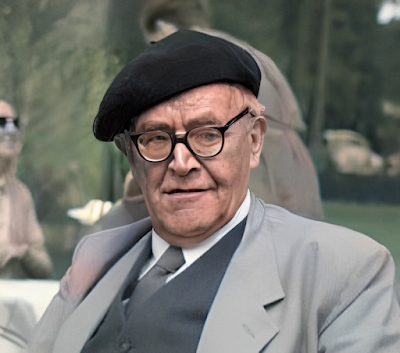Karl Barth
Karl Barth (May 10, 1886 – December 10, 1968) was a Swiss Reformed theologian and pastor who is widely regarded as one of the greatest Christian thinkers of the 20th century. He is best known for his book "Church Dogmatics," a monumental work that sought to reform and revitalize Protestant theology in the face of the challenges posed by modernity.
Barth was born in Basel, Switzerland, and studied at the University of Berlin, where he was influenced by the works of Friedrich Nietzsche, Søren Kierkegaard, and other philosophers. After serving as a pastor in Switzerland, he was appointed professor of theology at the University of Göttingen in Germany in 1921. It was during this time that he began to develop the ideas that would later form the basis of his theology.
Barth's theology is characterized by a commitment to the primacy of the Word of God, which he understood as the revelation of God's grace in Jesus Christ. He rejected the idea of natural theology, which holds that human reason can grasp some aspects of God's nature, and instead emphasized the radical difference between God and humanity. He also rejected the liberal theology of his day, which he saw as reducing the gospel to a set of moral and ethical principles.
In addition to his work as a theologian, Barth was also a political activist and a strong opponent of Nazi Germany. He was an early supporter of the Confessing Church, a group of German Christians who resisted the Nazi regime's efforts to control the churches. He was eventually forced to flee Germany and settled in Switzerland, where he continued to write and teach until his death in 1968.




Comments
Post a Comment